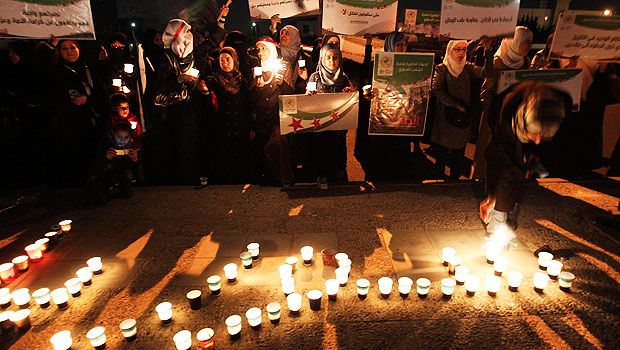
Damascus, April 6: Syrian troops attacked the Damascus suburb of Duma, an assault activists said shows that Bashar Assad’s government is intensifying violence in the days before the April 10 UN deadline to pull out forces from cities.
UN Secretary-General Ban Ki-moon said yesterday the crisis is getting worse and claiming more lives every day despite Assad’s pledge.
The UN chief appealed to Assad “to show vision and leadership” and keep his pledge to pull troops and heavy weapons out of cities and towns by April 10, and he urged the opposition to be ready to stop all violence if the Syrian government meets the deadline.
“Cities, towns and villages have been turned into war zones. The sources of violence are proliferating,” Ban told the UN General Assembly. “The human rights of the Syrian people continue to be violated. ... Humanitarian needs are growing dramatically.”
Earlier yesterday, a UN team arrived in Damascus to negotiate the possible deployment of UN monitors for any cease-fire between Syrian troops and rebel forces.
Ban said despite the Syrian government’s acceptance of Annan’s plan, “the violence and assaults in civilian areas have not stopped.” “The situation on the ground continues to deteriorate,” he said.
French Foreign Minister Alain Juppe said he was not optimistic about a peace plan for Syria and is ready to push for stronger UN action if the deadline is not met. Assad “is deceiving us” when he promises to abide by the peace plan, Juppe said.
“If we manage to get 200 observers (and the other measures in the peace plan) in place, things will change dramatically,” he told reporters in Paris. “If we don’t manage to get this by April 12, we have to go back to the UN Security Council.”





Comments
Add new comment